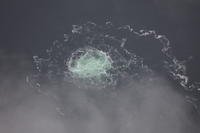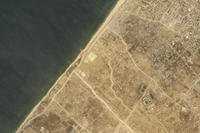...Well, sort of.
Last night in the State of the Union address, the Commander-in-Chief proposed this:
A second task we can take on together is to design and establish a volunteer Civilian Reserve Corps. Such a corps would function much like our military reserve. It would ease the burden on the Armed Forces by allowing us to hire civilians with critical skills to serve on missions abroad when America needs them. And it would give people across America who do not wear the uniform a chance to serve in the defining struggle of our time.
 Last summer, I presented a briefing at the US Army Combined Arms Center Combat Studies Institutes annual symposium. (full transcript of the conference) I also blogged about it here and here. In attendance at the conference, were such illustrious types as General David Petraeus, Dr. Lewis Sorely, Dr. Andrew F. Krepinevich, and many others. Granted I was the dim bulb in a room full of klieg lights, but it was interesting experience.
Last summer, I presented a briefing at the US Army Combined Arms Center Combat Studies Institutes annual symposium. (full transcript of the conference) I also blogged about it here and here. In attendance at the conference, were such illustrious types as General David Petraeus, Dr. Lewis Sorely, Dr. Andrew F. Krepinevich, and many others. Granted I was the dim bulb in a room full of klieg lights, but it was interesting experience.In my briefing, I proposed something very much like the president articulated last night. The crux of the problem is that about 97% of our standing national capacity to perform nation building operations in environments such as Iraq and Afghanistan resides within the military reserves. Most of these units are Army Reserve Civil Affairs units. There are about 7,000 civil affairs billets in the reserves. So a nation of 300 million relies on 7,000 military reservists whom we hope have all the skills we need to perform the stability-and-support, Phase IV operations. Four years into Iraq and the electrical grid is still in shambles. As a nation, we can do better.
Clearly our national approach to nation building isnt working. We dont have time to build this capacity after the shooting stops or the enemy regime tumbles. Iraq has demonstrated that our reconstruction capability needs to be in place quickly to pacify the civilian population. We have great organizations like USAID performing some of this role, but the American government is not configured to be expeditionary in nature. We need to change.
The military has tried some solutions to this problem like requiring that all reservists register their civilian skills with the military. This is a good idea, but a band-aid at best. In effect, we are relying on a crapshoot to determine if we have the skilled professionals we need in the military to rebuild war-shattered nations. We are hoping that the officers and enlisted men who joined the Army in the 80s and 90s have matured into the fire and police chiefs that we brag about having today.
I proposed that we create a standing force of skilled civilians as an augmentation to the military reserves. The same legal protections that apply to military reservists would be extended to these civilians. They would train like reservists and be available for deployment like reservists. They would join with the understanding that they could be put in harms way. Many in the blogosphere scoffed at the idea that we would be able to recruit people for this mission, but I believe that in the post 9-11 world many Americans are looking for a way to get in the fight besides going to the mall.
Having this standing capability might also ease our reliance on contractors or the ad-hoc nature that characterized the establishment of the CPA in Iraq. If we are truly engaged in a generational struggle, then we need to configure our government for it. We wished away nation building with political rhetoric in the 2000 election, and now it is time to face reality and enhance our capacity to do it right.
-- Kris Alexander
UPDATE 1:55 PM: "I've worked on this issue for many years on and off the Hill," says The White House Project's Lorelei Kelly. The origins can be found (with all due respect, Kris) "in the Clinton era, with the Office of Transition Initiatives."
The Clinton folks wrote the roadmap for complex contingency operations through a set of four presidential directives. Sadly, the new National Security Council threw them all out upon coming to office and so lost some of the most important institutional memory they could have had for subsequent policy crises.
This is an important innovation in government because it operationally begins to re allocate the division of labor away from the military and to civilians, as it should be. The military should not be doing many of the tasks that have accrued to it...but it is a problem solving and manpower heavy organization that does not say "no." Also, I welcome the addition of more civilians working as international public servants. These are jobs that belong in a long overdue discussion about the essential role of government in today's world....the reason the Blackwaters and other private military companies have thrived so during the past decade is not a question of whither mercenaries, its a fat and lazy elected leadership that REFUSES to have this conversation because the easiest budget box to check is to fund the defense budget at any outrageous level...
If we don't talk about the roles and missions of our agencies post 9/11 there will be no end to the spending, and we'll have both the Cold War hangover and legacy budget with an ineffectual grab bag of personnel and tools...all over militarized, and all to our own detriment.
Tom Barnett can probably cry "stolen," too.








